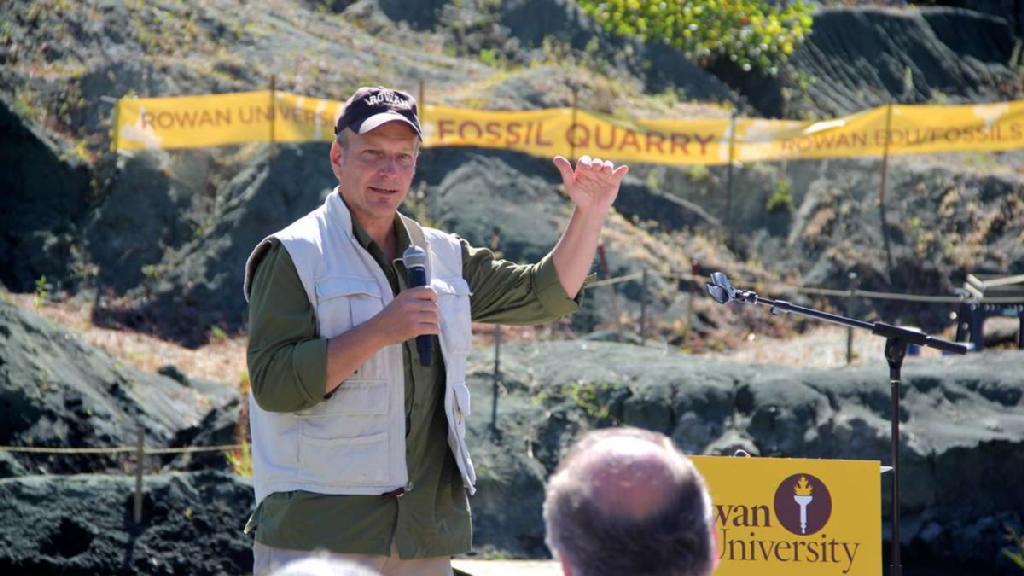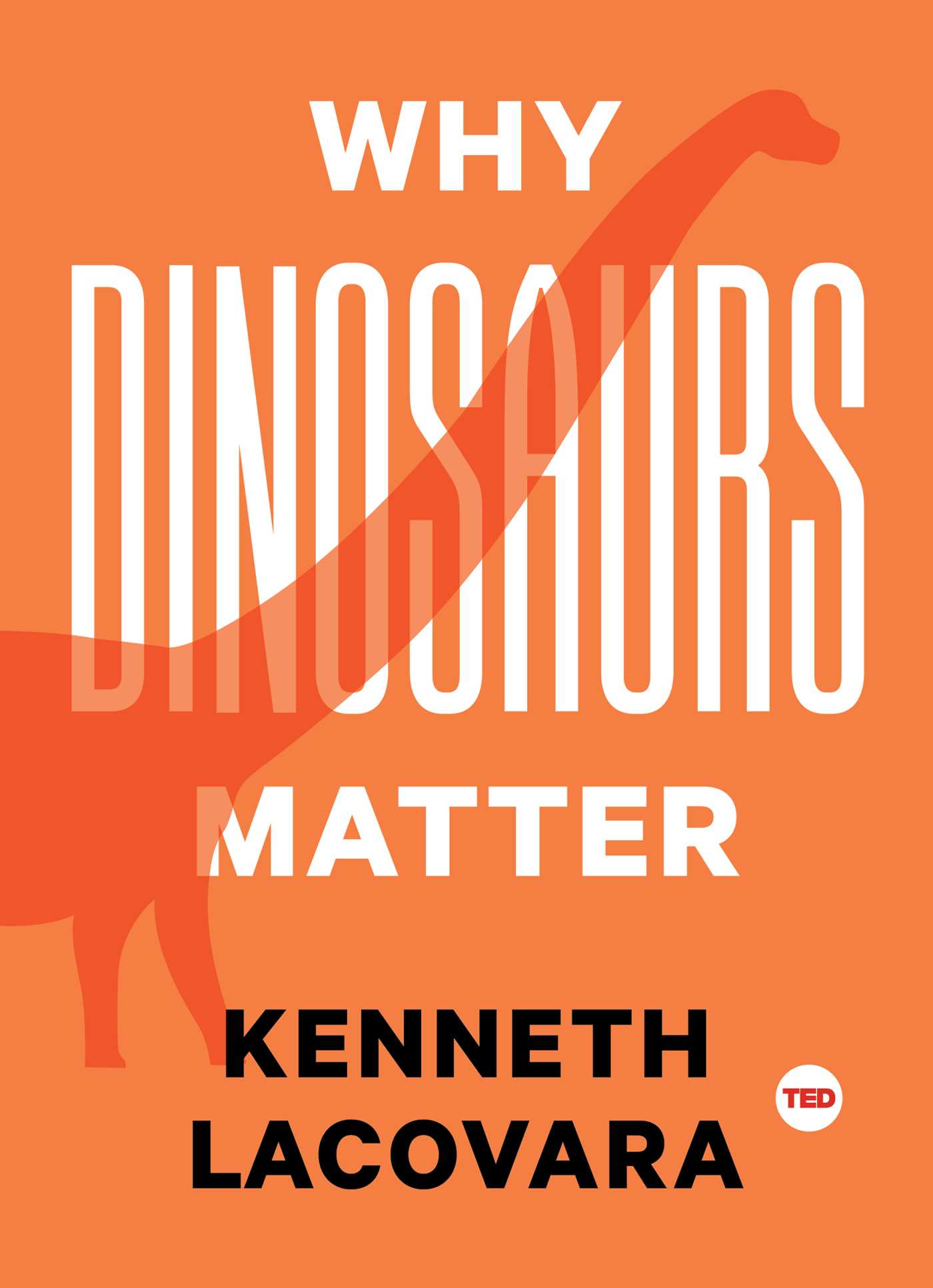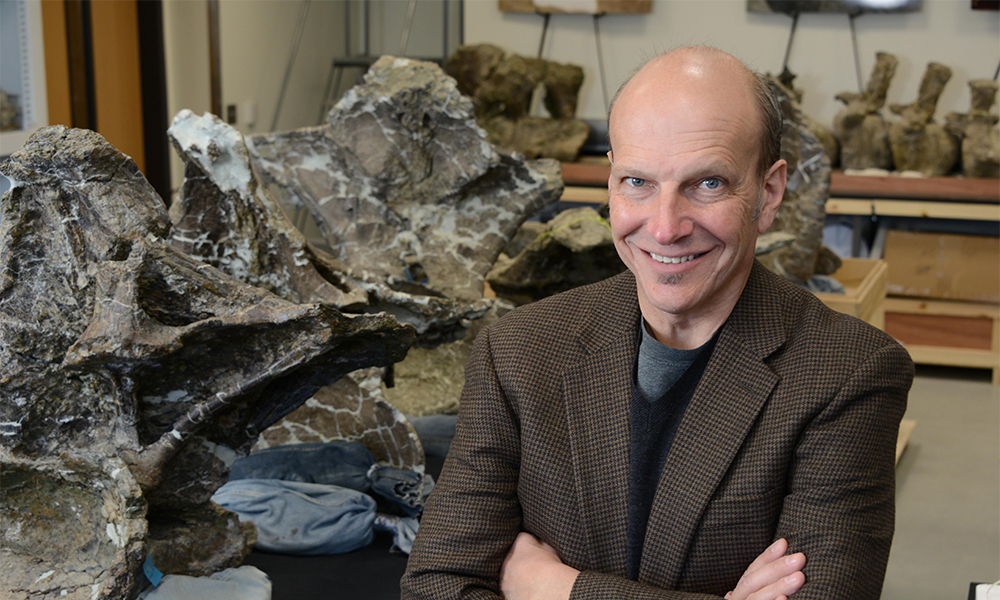Dr. Kenneth Lacovara has unearthed some of the largest dinosaurs ever to walk our planet, including the super-massive Dreadnoughtus, which at 65 tons weighs more than seven T. rex. In his quest to understand these titanic creatures that strain the human imagination, Lacovara blends exploration in remote locations across the globe with the latest imaging and modeling techniques from engineering to medicine.
When he’s not excavating fossils in far-flung locations, Lacovara works on the cutting edge of applying 21st-century technology to the study of dinosaurs. By using 3D imaging, 3D printing, robotics, and medical modeling techniques, his work is helping to shift our perspective of giant herbivorous dinosaurs from their historic portrayal as hapless lumbering prey to that of fearsome, hulking, hyper-efficient eating machines that deserve our awe and respect.

Lacovara led the effort to create the Edelman Fossil Park in New Jersey. Within its quarry, Lacovara and his team are using a globally important cache of 65 million year old fossils to shed light on the calamitous events that wiped out the dinosaurs and helped shaped the modern world. As a community inspired park, Lacovara’s vision is to create a center for citizen science that connects people to their ancient past and fosters pathways into the STEM disciplines for students of all ages and backgrounds.

Dr. Lacovara is author of Why Dinosaurs Matter (2017, Simon & Schuster), winner of a 2018 Nautilus Book Award. In it, hetakes his readers on a journey—back to when dinosaurs roamed the Earth—to discover fundamental truths about our own humanity. Lacovara reveals dinosaurs to be widespread, persistent, and innovative creatures that achieved feats unparalleled by any other species. Dr. Jane Goodall calls it, “a dinosaur book with a difference. In lyrical prose he shows how an understanding of the past helps to understand the present.” Mythbusters Adam Savage says that, “few nonfiction writers wield words with more poetic and potent affection for their subject.” And the BBC’s Professor Alice Roberts calls the work, “majestic, awe-inspiring–and deeply humbling.”
